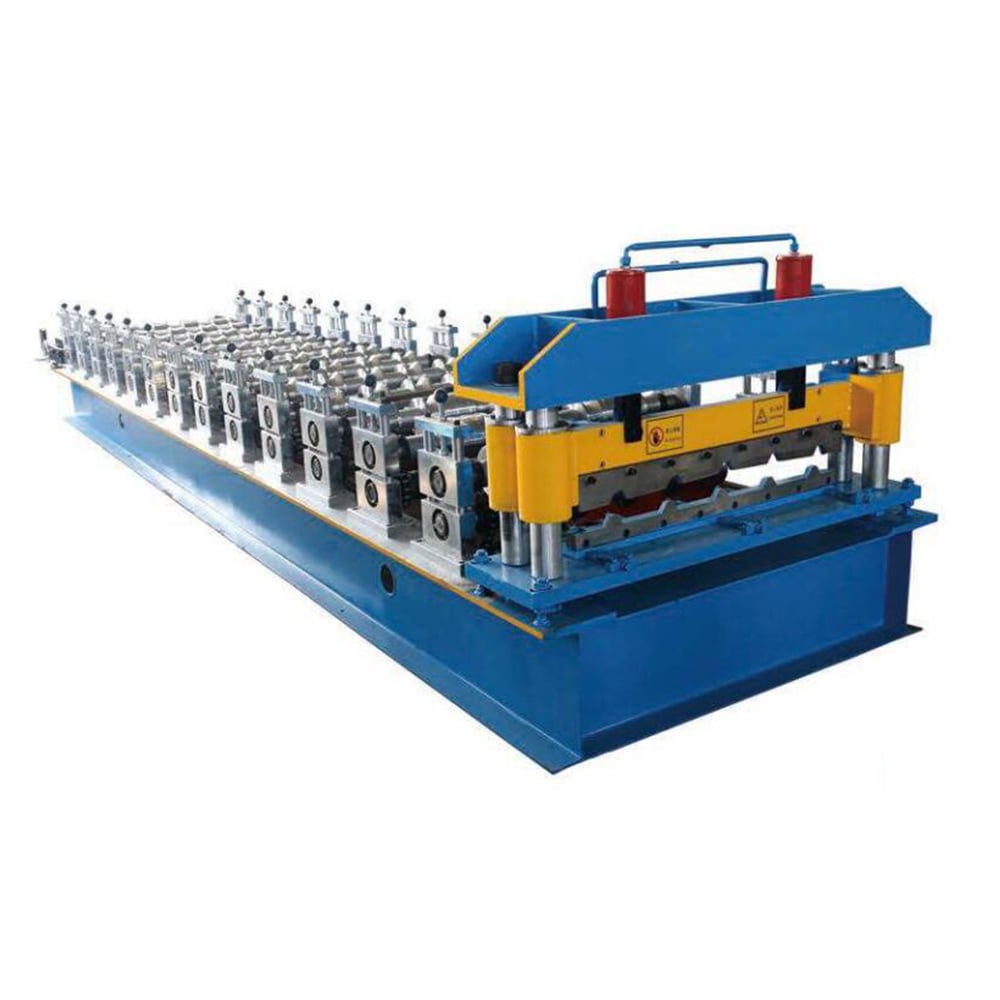1. Understanding Glazed Tile Roll Forming Machines
A glazed tile roll forming machine is an essential piece of equipment used in the manufacturing process of glazed tiles. This machine operates by a continuous bending process, transforming flat metal sheets into beautifully shaped glazed tiles. With precise control and high efficiency, these roll forming machines ensure consistent quality and uniformity in the production of glazed tiles.
2. How Glazed Tile Roll Forming Machines Work
Glazed tile roll forming machines work by passing metal sheets through a series of rollers and forming stations. These rollers gradually shape the metal sheets into the desired profile, creating the distinctive curves and features of glazed tiles. The machine is equipped with various modules and tools that can be adjusted to achieve different tile profiles and sizes.
3. Advantages of Glazed Tile Roll Forming Machines
Glazed tile roll forming machines offer several advantages over traditional tile manufacturing methods. Firstly, they are highly efficient, allowing for a continuous production process with minimal downtime. Secondly, these machines provide excellent accuracy and consistency, ensuring that every glazed tile produced meets the desired specifications. Additionally, roll forming machines can handle a wide range of materials, including steel, aluminum, and stainless steel, making them versatile for different tile manufacturing needs.
4. Key Components of Glazed Tile Roll Forming Machines
A glazed tile roll forming machine consists of several key components that work together to create the desired tile profiles. These components include a decoiler, feeding system, roll forming stations, cutting system, and control panel. The decoiler unwinds the metal coil, while the feeding system feeds the metal sheets into the roll forming stations. The roll forming stations shape the metal sheets, and the cutting system cuts the formed tiles to the required length. The control panel allows operators to adjust and monitor the machine's settings and parameters.
5. Different Types of Glazed Tile Roll Forming Machines
There are various types of glazed tile roll forming machines available in the market, each designed to cater to specific tile profiles and production requirements. Some common types include double layer roll forming machines, automatic roll forming machines, and hydraulic roll forming machines. Double layer roll forming machines are capable of producing two different tile profiles simultaneously, while automatic roll forming machines offer a higher level of automation for increased productivity. Hydraulic roll forming machines are known for their superior strength and stability.
6. Factors to Consider When Choosing a Glazed Tile Roll Forming Machine
When selecting a glazed tile roll forming machine, there are several factors to consider. Firstly, the machine should be able to produce the desired tile profile with the required precision and accuracy. It should also have the necessary flexibility to accommodate different tile sizes and materials. Additionally, the machine's production capacity and speed should align with the specific production needs of the manufacturer. Other factors to consider include the durability and reliability of the machine, as well as the after-sales support provided by the manufacturer.
7. Maintenance and Care of Glazed Tile Roll Forming Machines
To ensure the longevity and optimal performance of a glazed tile roll forming machine, regular maintenance and care are essential. This includes routine inspections, lubrication of moving parts, and cleaning of the machine. Operators should also be trained on proper machine operation and safety procedures to minimize the risk of accidents and damage. By following the manufacturer's guidelines and recommendations, manufacturers can maximize the lifespan of their glazed tile roll forming machines.
8. Common Challenges and Troubleshooting
While glazed tile roll forming machines are generally reliable, there can be occasional challenges or issues that may arise during operation. Some common problems include material jamming, misalignment of rollers, or irregular tile shapes. These issues can often be resolved by adjusting the machine settings, replacing worn-out components, or performing minor repairs. In case of major problems, it is advisable to seek assistance from the manufacturer or a qualified technician.
9. Industry Applications of Glazed Tile Roll Forming Machines
Glazed tile roll forming machines find extensive applications in the construction industry, particularly in roofing and wall cladding projects. Glazed tiles are highly durable, weather-resistant, and aesthetically pleasing, making them a popular choice for residential and commercial buildings. These machines are also used in the production of decorative tiles for interior design purposes. With the ability to create various tile profiles and designs, glazed tile roll forming machines offer endless possibilities for architectural creativity.
10. Future Trends and Innovations in Glazed Tile Roll Forming Machines
The field of roll forming technology, including glazed tile roll forming machines, is continuously evolving. Manufacturers are constantly striving to enhance machine efficiency, precision, and automation. Recent innovations include the integration of advanced control systems, such as computer numerical control (CNC), to achieve higher accuracy and faster production speeds. Additionally, there is a growing focus on sustainability and energy efficiency, with the development of eco-friendly materials and energy-saving features in roll forming machines.
